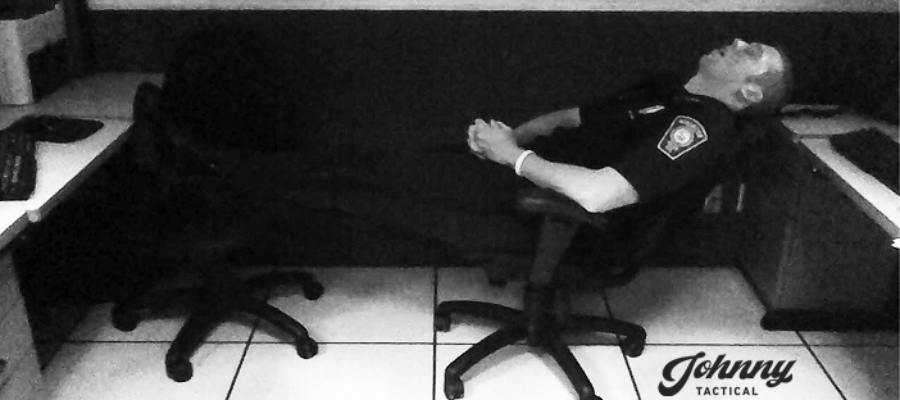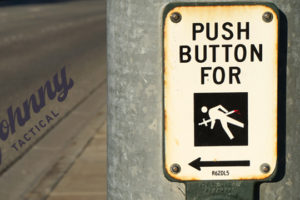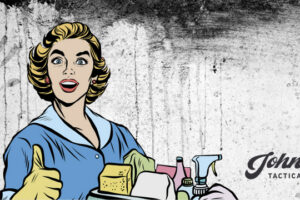Quiet quitting is nothing new in law enforcement, it’s just a new name for an old problem. Back in the day we called it Retired On Duty, or ROD for short, and was generally reserved for the old, salty cops — the kind of guys who didn’t wear vests, chain-smoked Marlboro Reds, and only answered the radio when they were good and ready. And report writing? Not a chance. But now it seems that quiet quitting in law enforcement isn’t just for the old guys anymore. It looks like it’s creeping into the psyche of cops with fewer and fewer years on the street.
To Be Or Not To Be Engaged
In a Gallup article published in October 2020 they found that, “the percentage of engaged employees — those who are highly involved in, enthusiastic about, and committed to their work and workplace — has dropped back to just slightly above the pre-COVID-19 rate of 35%, to 36%. The percentage of workers who are ‘actively disengaged’ — those who have miserable work experiences and spread their unhappiness to their colleagues — in this latest survey remains the same, at 13%. The remaining 51% of workers are ‘not engaged’ — they are psychologically unattached to their work and company.”
So let’s do a little math on that shall we? If we add that up it means that 64% of employees are not engaged or actively disengaged at work. That’s about 2/3 of the workforce who are either psychologically unattached to their work, are spreading hate and dissension while at work, or both. That’s pretty gross. But here’s the kicker — I checked the polling data and found no category for law enforcement. The closest thing I could find was a category of respondents called Government, which could be anyone from the angry lady with the giant mole at the DMV to the high school gym teacher to the bean-counter at the IRS.
Two Lifetimes A Year
Anecdotally speaking, it seems to me that the numbers for disengagement in law enforcement would be a heck of a lot higher than the average American employee. Here’s why I think that.
The Fraternal Order Of Police recently posted that, “Some studies show that the average (police) officer experiences more traumatic events in 6 months than the average person does in a lifetime.” To put that into perspective using a personal sidenote, I’m now up to over 38 lifetimes-worth of trauma. That’s a little disturbing for everyone.
Now, take that trauma and then add shift work, long hours, inherent danger (331 officers were shot and 62 of them died last year alone), the increasing popularity of disrespect and hatred toward law enforcement, the persistent attacks on qualified immunity, and an average salary of $61,600 a year, and it’s no wonder cops are retiring on duty, retiring early, or just flat out quitting.
The Way Things Are
In my experience, police departments are generally pretty far behind the progress of corporate America in terms of salary, benefits, and adapting to change. In other words, it takes a while for good ideas to catch on because, as a good friend of mine once said, “There are two things cops hate: the way things are, and change.”
Police departments do many of the things they do for one reason, and one reason only: That’s the way we’ve always done them. We tend to have stupid SOPs, pointless paperwork, treat rookies like crap, scream and yell at subordinates, berate and bully peers we don’t like, don’t hire people who need to be hired or fire people who need to be fired, and then wonder why we don’t get different results when we keep doing the same things over and over.
Raise The Bar
Yes, police departments are paramilitary organizations that have to send officers into harm’s way, give difficult orders, and those of us on the receiving end have to obey those orders. Yes, cops need to have thick skin and dark humor because we deal with dark things. Yes, cops need to be physically fit and mentally strong because some people need saving while others will try to kill us. Yes, cops need to be empathic because we deal with true victims and people less fortunate than us. But we shouldn’t be robots, pawns, or punching bags.
Administrators don’t need to lower the bar and hire unqualified wimps because they check certain boxes on an application or to embrace woke ideologies to try to get political brownie points. Those are short-term, failing strategies. In fact, I think quite the opposite. We should throw the politics in the trash, drop the pretenses, and raise the bar. We can and should have officers on the street who are strong, brave, kind, smart, and caring, who can still kick butt, take names, and storm the gates of Hell with a squirt gun.
So how do we stop quiet quitting in law enforcement if lowering the bar and adopting woke ideologies aren’t the answer? How do we bring officers out of on-duty retirement? I don’t have all the answers and I don’t think there’s one magic bullet, but I do have an opinion, and I’m an expert on my opinion.
The Golden Rule
It doesn’t get simpler, and it never gets old. Departments don’t need to fly flags, decorate cruisers, or push agendas. We need to follow the Golden Rule and treat others the way we would want to be treated. All of us just want to be treated like humans, not badge numbers. It’s really that simple.
Recognition
Most of us just want to be recognized, it’s human nature and in line with recent studies. Frankly, administrators in law enforcement traditionally don’t do a great job with recognition. Men and women who do the dirty work are often overlooked or overshadowed by those who seek the spotlight or rub elbows with the right people. Often what happens is awards and commendations get watered down because they get handed out like candy at a 4th of July parade instead of being reserved for the extraordinary. An award you received for doing actual police work seems less valuable when some other bozo got the same award for spectating. Recognition can come in a lot of other ways, too, it doesn’t have to be a pin or a ribbon. Reward the behaviors you want repeated. There are lots of ways to do it.
Compensation
I get it, our salaries are paid by tax dollars. We don’t get paid by the bad guy and there is no commission program. But on the other hand, you get what you pay for. Cops are grossly overworked and underpaid. If you want highly trained professionals who make life and death decisions, you should pay what a highly trained professional would earn in the open market — at a competitive rate, I might add.
Mentorship
Do as I say, not as I do has been and often continues to be the mantra of law enforcement administrations. The Good ‘Ol Boys Club of ranking officials that continues to promote their buddies — or their buddy’s buddy — is a cancer, not leadership. Meanwhile, from the very beginning, we tend to train officers to be followers, not leaders. We teach what or how, not why. We pretend that what happens in our personal lives doesn’t matter and that morality and a code of conduct is for optics, not as a practice. We neglect personal growth in favor of sterile textbook management theory. Cops want to be led by example, to be mentored, and in turn, to be given the opportunity to lead others.
Synonyms For Sucking
It could be that right now you find yourself in an unhealthy police culture. You are waiting to be treated like a human, to be recognized for the work you do, to be paid like a professional so you can support your family, and to be mentored and to lead. Maybe you are teetering on the edge of becoming a quiet quitter, of retiring on duty, or you’re already there. As much as I know how you feel and have been there, too, we have to call a spade a spade and say out loud what it is. Quiet Quitting, Retired on Duty, the Great Resignation, Disengagement, or you’re 5-year slump, are all just synonyms for sucking. They are not the problem, they are symptoms of the problem.
Selfishly, as I type this — behind schedule I might add — I’m writing this for me more so than anyone else. But I think that we may be in the same boat, and apart from the catharsis this might bring me, it’s something that could help you as well, which, after all, is really the point.
The Person In The Mirror
I’ve heard it said that oftentimes we are just waiting for a reasonable excuse to fail. The fact that an excuse is valid doesn’t make it worth using. Despite what administrations do or say or how screwed up they are, we still get to choose how we respond. We are responsible for our own thoughts, feelings, and actions. The problem is the person in the mirror.
Let’s not use the dysfunction that is festering around us as a reasonable excuse to retire on duty, and ultimately, to fail, because it’s not an excuse worth using. Let’s not adopt one of the synonyms for sucking and pretend we don’t get to choose how we act. Let’s pick ourselves up, dust ourselves off, and get back out there and do the work that God has given us to do.
__________________________
- Which side of the fence do you find yourself on?
- How would you describe the culture where you work?
- Who can you go to for mentorship? Who can you lead?
- What impact can you have if you refuse to use the reasonable excuses?
__________________________
Thanks for reading! Do you have a story that you think we could learn from and that you’d like to share with Johnny Tactical nation? Fill out the contact form and include your name, rank, and department, or email it to [email protected] and follow these guidelines:
– It must be a firsthand account
– True
– Have a lesson, principle, or tactic to apply
– Cleaned of names, dates, and places
– Include your call sign
If your story is selected and published in our blog you’ll get the credit using your call sign and we’ll send you a free Live Tactical t-shirt!






2 Comments
Leave your reply.